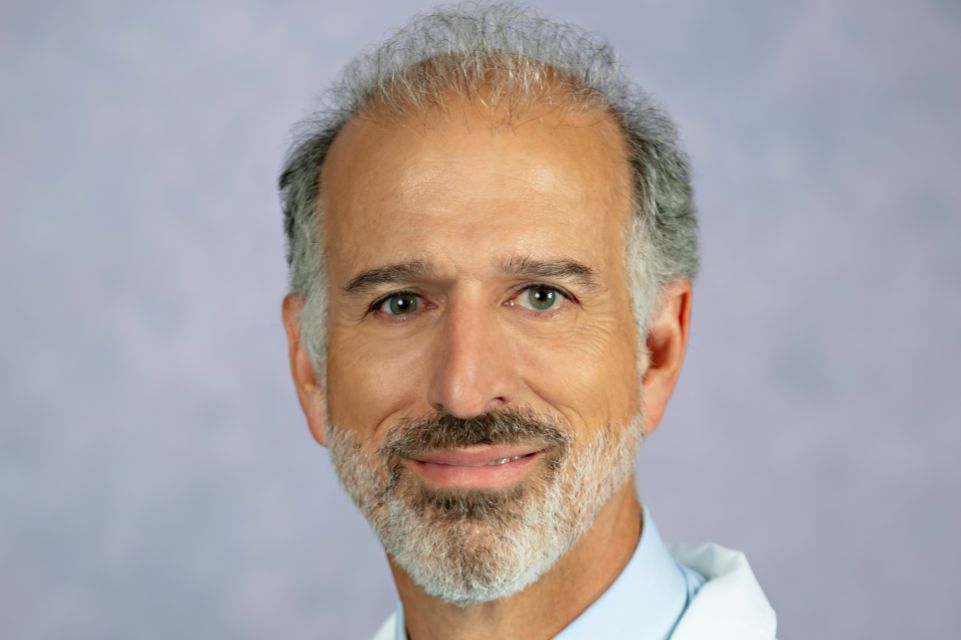TGH Cancer Institute Oncologist to Speak at Prestigious Educational Session at Annual ASCO Meeting
Published: Jun 1, 2023
Dr. Ivan Borrello, a world-renowned specialist in multiple myeloma, will discuss CAR-T cell therapy and strategies to improve the lives of patients.
Tampa, FL (June 1, 2023) – A prominent physician-scientist at Tampa General Hospital (TGH) Cancer Institute will speak on state-of-the-art novel therapies, including targeted therapies and cellular therapies for patients with myeloma at the annual conference of the American Society of Clinical Oncology (ASCO) on June 4 in Chicago. More than 40,000 cancer physicians and physician-scientists from all over the world are expected to attend this conference.
Dr. Ivan Borrello, director of the Multiple Myeloma, Bone Marrow Transplant (BMT) and Cell Therapies Program within the TGH Cancer Institute, will present a talk within an educational session entitled “Embracing Myeloma CAR-T: From Scientific Design to Clinical Impact,” where he will discuss the “The Design and Biologic Principles of CAR-T Cell Therapy for Multiple Myeloma.” He will address the rationale for the biologic design of CAR-T cells and approaches to improving their efficacy. Two other presentations within that session will also focus on the clinical outcomes of myeloma-specific CAR-T cells and approaches to broadening the access to CAR-T in myeloma. Borrello’s topics are among 2,900 abstracts spanning all cancer types as part of the prestigious five-day ASCO meeting.
CAR-T cell therapy is a promising treatment for patients with multiple myeloma whose disease has relapsed or is not responding to prior treatments. It is a highly specialized therapy that involves genetically modifying a patient's own T cells to attack their myeloma using a target called B-cell maturation antigen (BCMA). The FDA has approved CAR-T-cell therapy for multiple myeloma patients. Borrello is an internationally known translational investigator who applies new discoveries to patient care. An expert in the fields of multiple myeloma, bone marrow transplant and cell therapies, he specializes in developing novel cell-based therapies and transplant platforms for patients with multiple myeloma and other malignancies.
Borrello joined the TGH Cancer Institute in 2022 to lead its myeloma, bone marrow transplant (BMT) and cell therapy programs. He works with a highly specialized team treating patients with aggressive hematologic malignancies (blood cancers), such as leukemias, lymphomas and multiple myeloma. He was drawn to Tampa General because of its approach to innovation, next-generation therapeutics and commitment to providing cutting-edge care for every patient.
Borrello has been involved in cancer immunology and immunotherapy since its infancy in the 1990s and is recognized as one of the leaders in the field of immunotherapy of hematologic malignancies, as well as bone marrow transplants. He pioneered novel approaches to T cell therapy and the development of cancer vaccines. He is recognized for his many contributions to the treatment of multiple myeloma patients using bone marrow-infiltrating lymphocytes (MILs), a novel platform that is being evaluated in clinical studies for patients with myeloma and other hematologic and solid malignancies. He came to Tampa from the Johns Hopkins Sidney Kimmel Comprehensive Cancer Center, where he was the leader of the Myeloma Program, director of Cellular Therapies Core, and a member of the Cancer Immunology and Immunotherapy program.
Borrello obtained his medical degree from the Medical College of Virginia in Richmond, completed his residency training (internal medicine) at the University of Chicago and was fellowship-trained in medical oncology at Johns Hopkins University. He joined the faculty of Johns Hopkins Oncology Center in 1999 and established himself as a highly productive physician-scientist with seminal contributions to the understanding of T-cell responses in hematologic malignancies.
For more information about the TGH Cancer Institute, visit www.tgh.org/cancer.
